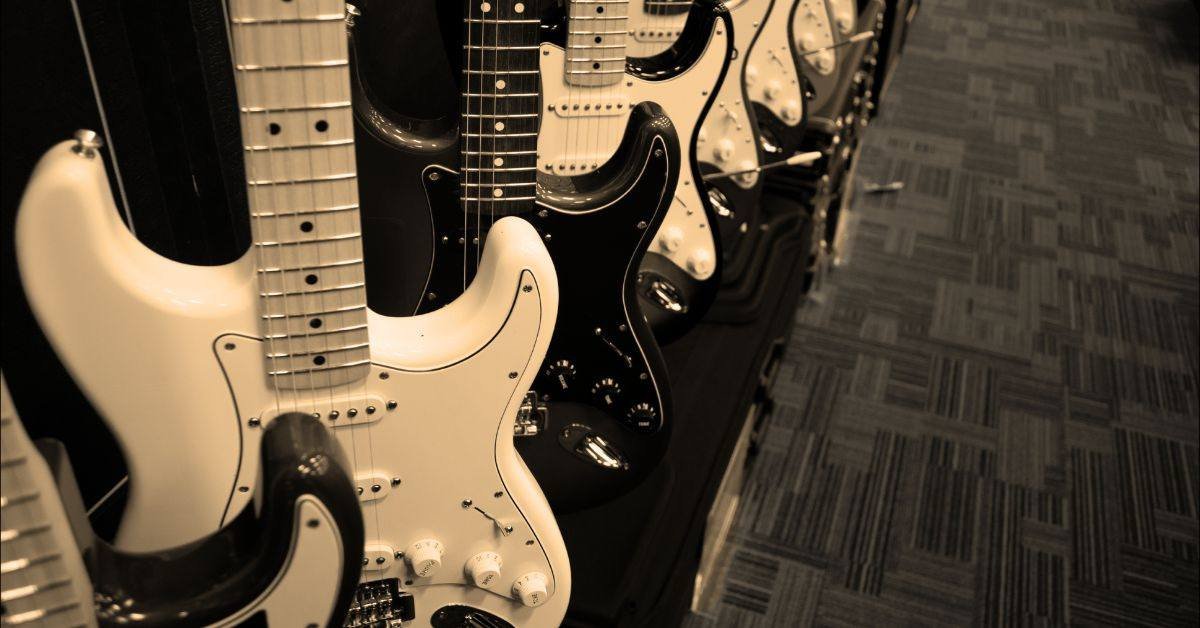When starting your musical journey, selecting the right electric guitar can significantly impact your learning experience and motivation. A well-chosen beginner guitar balances quality, playability, and affordability, setting a foundation for developing proper technique and sound. Many new players feel overwhelmed by the variety of options and technical specifications available. Understanding key features and common pitfalls helps narrow the choices to suitable instruments. While high-end and custom guitars may seem appealing, focusing on fundamental qualities ensures a rewarding learning experience without unnecessary complexity or expense.
Essential Features
A quality beginner guitar should include stable tuning machines that maintain pitch during play. The neck profile needs to accommodate developing hands, with smooth fret edges and comfortable spacing. Reliable electronics, including decent pickups, ensure clear sound production. Look for solid body construction and proper bridge alignment for sustain and intonation.
Price Range and Value
Entry-level electric guitars typically range from $200-500. This price point offers instruments from reputable manufacturers with acceptable quality control. Spending less often results in guitars requiring immediate upgrades or repairs.
Recommended Brands
- Squier Classic Vibe series combines quality and value
- Yamaha Pacifica provides excellent build consistency
- Ibanez GIO series offers versatile sound options
- Epiphone Les Paul models deliver classic aesthetics and tone
Custom vs Production Guitars
While you may be looking for a custom electric guitar, Custom guitars, while appealing, aren’t recommended for beginners. Production guitars offer consistent quality standards, immediate availability, and better resale value if interests change. The lower initial investment allows for purchasing necessary accessories and lessons. Beginners often lack the experience to specify custom features effectively, making production models a more practical choice.
Custom guitars typically start at $1500 and can exceed $5000, making them a significant investment. The waiting period often ranges from 6-12 months, delaying the start of your musical journey. While custom guitars offer personalized specifications like neck shape, wood selection, and pickup configuration, these choices require experience to make informed decisions. Additionally, custom guitars may have limited resale appeal due to their specific configurations.
Production guitars benefit from refined manufacturing processes and extensive quality control systems. Major manufacturers have perfected their building techniques over decades, resulting in reliable instruments at accessible price points. These guitars also offer the advantage of being readily available for comparison shopping, allowing players to try multiple examples of the same model to find the best match.
Essential Accessories
Starting your guitar journey requires several key items beyond the instrument. A practice amplifier between 10-20 watts provides sufficient volume for home use. Include a quality guitar cable, digital tuner, and protective case. Regular string changes and basic maintenance tools ensure your instrument stays playable.
Trying Before Buying
Visit local music stores to experience different guitars firsthand. Test various neck profiles for comfort and assess overall build quality. Listen for sound differences between models through similar amplifiers. Check the action height and verify all electronics function properly.
Maintenance Considerations
Regular maintenance ensures your guitar remains playable and holds its value. Plan for string changes every few months and annual setup adjustments. Basic cleaning supplies and tools allow for routine care at home, while more complex adjustments may require professional service.
Focus on playability and build quality rather than advanced features when selecting your first electric guitar. A well-made production model from a reputable manufacturer provides the best foundation for learning. Save custom guitars for later when you’ve developed specific preferences and playing style. Remember, even professional musicians often prefer quality production instruments for their reliability and consistency.


Thank you for your sharing. I am worried that I lack creative ideas. It is your article that makes me full of hope. Thank you. But, I have a question, can you help me?